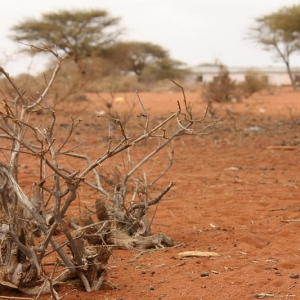Federal Water Tap, October 18: Agencies Call Attention To Cyber Threats Against Water Utilities
The Rundown
- Federal agencies warn water utilities about the risks of cyberattacks.
- The U.S. Fish and Wildlife Service decides that an odd-looking Colorado River fish is no longer endangered.
- USDA distributes $272 million in grants and low-interest loans for rural water and sewer systems.
- The EPA releases a report on monitoring wastewater for SARS-CoV-2.
- Senators urge the EPA to strengthen guidance for industrial discharge of PFAS chemicals.
And lastly, congressional hearings this week on PFAS chemicals, rural economies, Colorado River drought, and the upcoming UN climate conference.
“We have serious concerns that this guiding document will fail to urgently address the threats posed by widespread PFAS contamination, including curbing industrial discharges of PFAS into the air and water.” — Text of a letter to Michael Regan, the EPA administrator, from 18 senators who are requesting the agency strengthen its draft guidelines for PFAS discharges from chemical manufacturers, electroplating facilities, and slaughterhouses.
By the Numbers
$272 Million: U.S. Department of Agriculture funding for rural water and sewer projects. Seventy percent of the total comes in the form of low-interest loans. The remainder is grants. The funding will assist 114 projects, including a $2.6 million loan to Otsego, Michigan, to extend public water to 120 homes affected by PFAS contamination in their wells.
News Briefs
Cyber Threats to Water Utilities
Four federal agencies issued a joint statement warning that hackers are probing digital vulnerabilities for water and sewer systems.
The advisory does not indicate more cyberattacks are occurring against these utilities. It points out that such attacks are a persistent threat. Cyber intrusions happened this year in California, Maine, and Nevada.
The statement, which also describes protective measures that utilities can take, was signed by the Federal Bureau of Investigation, the Cybersecurity and Infrastructure Agency, the Environmental Protection Agency, and the National Security Agency.
In context: Cheap Cybersecurity Defenses Exist, But They’re Not Reaching Water Utilities Who Need Them
Change in Status for Colorado River Fish
The U.S. Fish and Wildlife Service upgraded the status of the humpback chub from endangered to threatened, saying that the fish native to the Colorado River basin is no longer at risk of extinction.
Listed as endangered in 1967, the humpback chub has many obstacles to survival: dams that cut off habitat and alter river flows, warming waters, and non-native predators.
FWS officials think that conservation efforts have reduced immediate dangers to the humpback chub. Dam operations have been modified so that water releases are closer to natural patterns. Non-native predator fish have been targeted for removal.
Water utilities agreed with the move, which will decrease some protections for the fish.
But not everyone is pleased with the decision. Conservation groups like WildEarth Guardians and the Sierra Club Grand Canyon chapter argue that threats to the humpback chub still exist and that endangered status should remain.
Studies and Reports
How-To Guide for Monitoring SARS-CoV-2 in Wastewater
The U.S. Environmental Protection Agency published a report to assist states and communities with starting a wastewater monitoring program to track the spread of SARS-CoV-2.
The report details monitoring programs in Indiana, New Mexico, Ohio, and other of the 14 states that track the virus in sewage. There are also case studies at smaller scales, from programs implemented at the University of Arizona and the city of Houston.
The report outlines funding sources and technical resources.
On the Radar
WOTUS Update
The EPA and Army Corps of Engineers sent a revised version of the Waters of the U.S. Rule to the White House for review, E&E News reports.
Major rules like the definition of what waterways are protected by the Clean Water Act are first sent to the Office of Management and Budget before they are released publicly.
House Hearing on Rural Communities
On October 18, the House Select Committee on Economic Disparity and Fairness in Growth will hold a hearing on economic growth opportunities for “forgotten communities” in the Midwest.
In context: Michigan’s Rural Water Systems Confront Generations of Inadequate Investment
House Drought Hearing
On October 20, a House Natural Resources subcommittee will hold a hearing on drought response in the Colorado River basin. This is the second half of a two-part hearing.
Senate PFAS Hearing
On October 20, the Senate Committee on Environment and Public Works will discuss the EPA’s response to PFAS chemicals. Radhika Fox, the head of the Office of Water, will testify.
House COP26 Hearing
On October 21, a House Foreign Affairs subcommittee will hold a hearing in the run-up to the big UN climate conference in Scotland. The hearing topic: addressing climate change through international development aid.
Federal Water Tap is a weekly digest spotting trends in U.S. government water policy. To get more water news, follow Circle of Blue on Twitter and sign up for our newsletter.
Brett writes about agriculture, energy, infrastructure, and the politics and economics of water in the United States. He also writes the Federal Water Tap, Circle of Blue’s weekly digest of U.S. government water news. He is the winner of two Society of Environmental Journalists reporting awards, one of the top honors in American environmental journalism: first place for explanatory reporting for a series on septic system pollution in the United States(2016) and third place for beat reporting in a small market (2014). He received the Sierra Club’s Distinguished Service Award in 2018. Brett lives in Seattle, where he hikes the mountains and bakes pies. Contact Brett Walton






Leave a Reply
Want to join the discussion?Feel free to contribute!